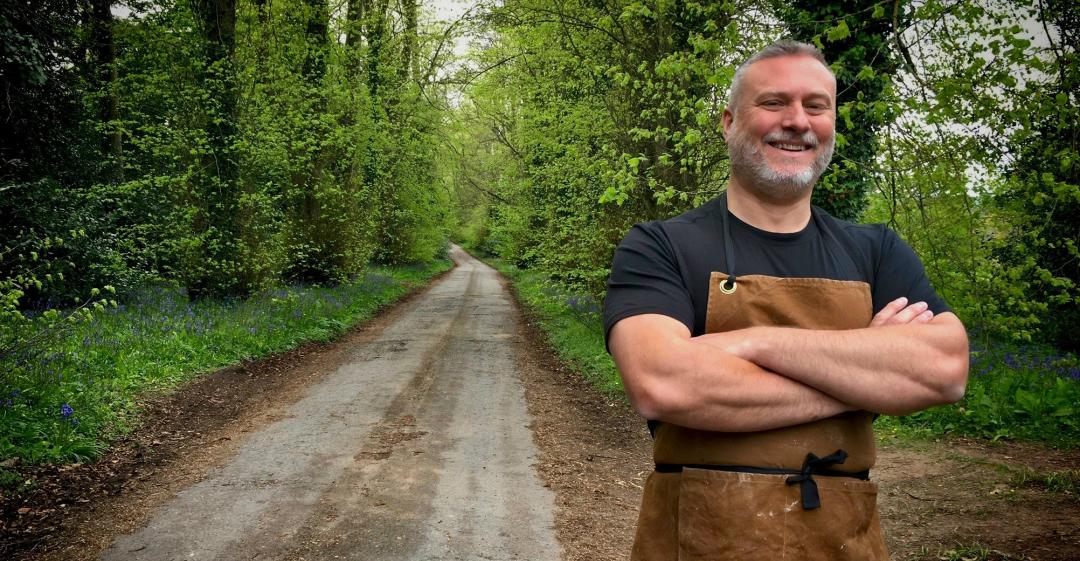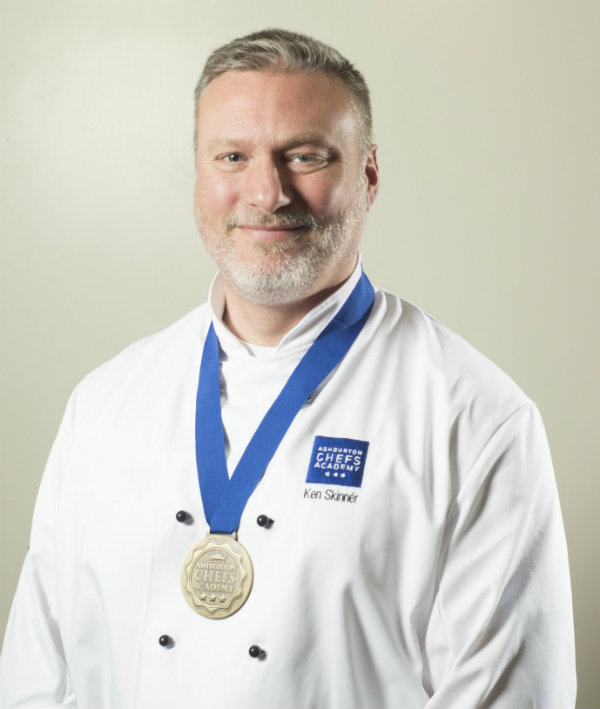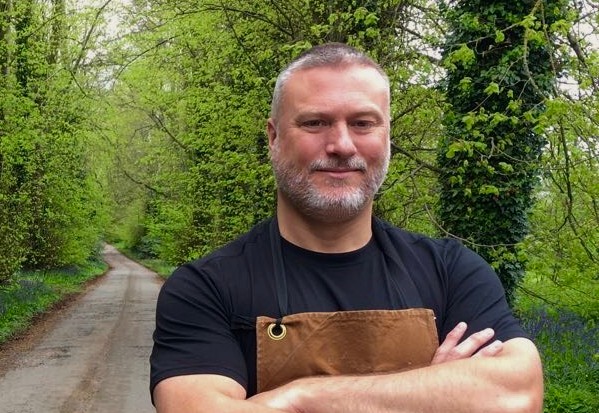“I felt trapped by the lifestyle I'd built.”

Newly Updated
What work were you doing previously?
I used to work as a structural engineer in the Oil and Gas industry.
It was a career I fell into by accident. At school I earned marginally better results in the sciences and maths and was recommended by careers advisers to choose that path rather than the arts.
I came from a family of engineers so I ended up doing a degree in mechanical engineering, thinking I'd end up designing sports cars. After graduation I was invited to join an Offshore Engineering consultancy in London and went for money rather than job satisfaction.
What are you doing now?
I now work as a private chef.
Since graduating from a Professional Culinary Arts diploma a year ago I've been focusing on events catering in and around Exeter.
How did you feel in your work before you decided to make the change?
I hated it.
The atmosphere in the offices that I worked in was toxic. I felt trapped by the lifestyle I'd built based on the high earning potential of the industry, and despite knowing I wanted to change I didn't know how.
Why did you change?
I became depressed and suffered with that for several years before I finally sought help from the NHS.
Recovery from depression opened my eyes to the possibility of change.
At that time the offshore industry started to tank. Jobs became scarce and the office environment worsened.
When was the moment you decided to make the change?
One day I found myself out of work with no opportunities on the horizon.
I looked for new work but nobody was answering emails or returning phone calls. Instead of flogging a dead horse I took it to be a positive sign that it was time to do something different.
How did you choose your new career?
I read a few self-help books which didn't really click with me, then signed up for one of the Careershifters workshops.
In one evening I gained enough insight into change that I felt I could finally make progress. I started by scrutinising both my existing and past life, going as far back as my childhood hobbies, looking at what made me happy and what I would choose to do even if I weren't paid for it.
As I wasn't working, I had time on my hands, so I was able to push forwards in several directions at once. I quickly narrowed the field of options to writing, photography (a childhood obsession) and cooking.
Are you happy with the change?
Yes.
I can say that without hesitation. It's hard work but I smile a lot.
What do you miss and what don't you miss?
At the moment I don't miss too much.
I used to live in Central London and had a varied social life, travelled extensively and spent cash like it was going out of fashion. I now live in rural Devon and I thought it'd be too quiet. It isn't!
How did you go about making the shift?
Once I'd narrowed the field to my top three choices of writing, photography and cooking, I decided to combine the three with food being the central focus.
I started writing a food blog about learning to cook better. I volunteered for a couple of food charities and one writing one. In the end I realised that I didn't have the knowledge base I needed and began researching cooking schools.
I didn't feel I could commit to a three-year course so I started looking into intensive-learning diplomas. There were several in the London area, but when I found the Ashburton Chefs Academy in Devon, with its emphasis on high-quality ingredients and the whole 'farm to fork' process, it felt like the right fit.
What didn't go well? What wrong turns did you take?
I wouldn't say anything didn't go well, as such, but I do think I was naive about how difficult the diploma would be for a mid-forties couch potato.
It was physically and mentally gruelling, and in the first few weeks I'd often get home from school and collapse into a chair.
I had wrongly assumed that I'd continue my writing and photography during the course. I had neither the time nor energy for either and life became about cheffing 24/7.
How did you handle your finances to make your shift possible?
I was lucky enough to own property in London, so I sold up. It wasn't an easy choice but it had to be done.
What was the most difficult thing about changing?
The hardest thing is the effect on family and loved ones as they're impacted too.
Not everyone around you wants you to change as it can negatively impact them.
What help did you get? 
I got help from Careershifters, of course, then later from an NHS careers adviser.
Ironically, the treatment for my depression opened the door to an array of mental health services. My careers adviser was brilliant at being a non-judgemental sounding board and really reinforced some of the ideas that I'd got from the Careershifters workshop.
What resources would you recommend to others?
In the nicest possible way, use people.
I grew up believing that being self-sufficient and solving your own problems was the 'right' way to live. That's nonsense. Ask people questions. Volunteer. Take friends and friends of friends out to coffee and pump them for info.
Don't be afraid of working for free if you need to. Doors don't open by themselves.
What have you learnt in the process?
I've learned to get out in the world and do something different rather than sit inside and think about change.
What would you advise others to do in the same situation?
Don't get too hung up on the destination. Start the journey and see where it takes you.
I wouldn't recommend just taking the plunge unless you have a massive safety net, but I would say to stop thinking and start doing. Don't believe that you can effect change by yourself. Instead, talk to Careershifters and then actually listen and act. Be open to other people's advice and opinions.
We caught up with Ken recently to see how his shift was working out, a couple of years on. Here's what he's been up to, and the biggest lessons he's learned.
What's changed for you in your career since we first published your story?
I've bought a guest house in Exeter, Devon.
It's a fantastic business which provides a firm financial basis for me to do other things that interest me. It does mean that I've temporarily had to step away from the level of cheffing that inspires me, but the goal is to upgrade the kitchen to give me the facilities I need to get back into events catering.
How do you feel about your work now?
I don't really see it as work.
It's my own business, which helps. There's a lot to get done each day but being the boss means I can have fun with it.
Once you start shifting it's hard to stop! I still don't see what I'm doing now as the destination. It's a stepping stone along the way and I'm always looking for the next opportunity.
What challenges have you come up against since making your shift, and how exactly have you dealt with them?
The biggest challenge to the business has been staffing.
We started with one employee and are now up to three. As we add revenue streams we can take more staff on but finding the right people has been more challenging than expected.
How is the financial side of things panning out, and is this what you'd expected?
I always knew that any change would start with a massive financial hit.
Buying the guest house was definitely a 'head over heart' decision but a necessary step to gain stability during the change process.
What have you learned, since making your shift?
The more you put into something, the more you get out of it.
Everything I've done, from private cheffing to owning the guest house, has been completely customer facing, where previously I used to mostly deal with computers. If you go all out to make sure a customer has a great experience then you get so much back from that yourself. It's a happiness feedback loop!
Is there anything else you'd like to share?
Just that the more you put yourself out there, the more opportunities come your way.
I still remember sitting in an office thinking that I was going to have to keep doing what I was doing for the next 20 years, simply because I didn't know what else I could do. I couldn't see the way out.
From the other side of the change, I can't imagine being back in that situation and mindset. There's always an opportunity to change. It may mean that you do work for zero pay or low wages but as long as you do something that gives you experience and opportunity then you're on the right track.
To find out more about Ken's business, visit instagram.com/townhouse_exeter.
What lessons could you take from Ken's story to use in your own career change? Let us know in the comments below.




